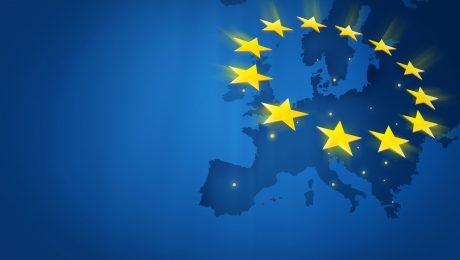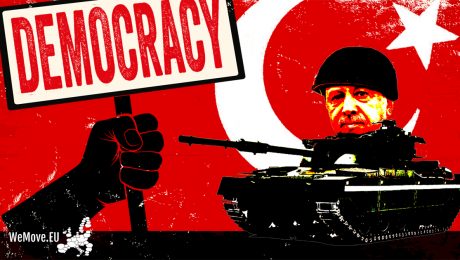Keyword: European Union

EU denies claims of designating Gülen group as ‘terrorist org’ in report
The European Union has denied claims by the Turkish press that it has, for the first time, called the Gülen movement a ‘terrorist’ organization in its upcoming progress report slated to be published on Tuesday. A source who spoke to Ahvalnews on the condition of anonymity categorically denied claims made by Turkish media sources.

EU Criticizes Kosovo, Turkey Over Deportation Of Six Erdogan Political Foes
The European Union on April 3 criticized Kosovo’s deportation of six Turks who were political foes of Turkish President Recep Tayyip Erdogan, saying it “raised questions” about both Pristina’s and Ankara’s “respect” for human rights.

EP’s Rebecca Harms Visited Turkish Educator Çabuk In Georgian Prison
Rebecca Harms, a member of the European Parliament and co-president of the Euronest Parliamentary Assembly visited Mustafa Emre Çabuk, a Turkish school administrator who was arrested by Georgian authorities last year at the request of the Turkish government, on Thursday according to her post on her Twitter account.

Rebecca Harms: Working in Gülen-linked educational institutions not a crime
Speaking during the general assembly of the European Parliament (EP) on Thursday, Harms said working in institutions such as schools or universities with links to the Gülen movement is not a crime and that, similarly, being critical of the government and being a critical journalist are not crimes.

Why the West ‘failed to understand’ Turkey
Erdoğan has exploited the presence of Gülen-inspired people in the state bureaucracy as a tool to silence all opposition and grasp yet more power. If the Gülen movement did not exist, the president would have needed to create another “enemy of the state” to fight against in order to reach his ultimate aim.

EU and Turkey’s rights abuse
How did Turkey plunge into this mess of freedom suffocation, and what has really gone wrong with the once-admired President Erdogan ? While I keep pondering on these questions, I believe it is not too late for the Turkish government to retrace its steps and embrace full democratic norms.

The Guardian view on Turkey’s repression: stop this stalemate
Turkey’s western allies are alarmed, but against a complex geopolitical backdrop, they have chosen discretion rather than valour. After the EU parliament last week voted to freeze EU accession talks with Turkey, Mr Erdoğan lashed out by threatening to open the country’s borders to migrants heading to Europe. This is tantamount to blackmail.

EU, US Have Little Leverage as Turkish Democracy Backslides
“In the big picture, Erdogan knows that the EU needs Turkey and will come back begging for a new agreement on the migrants. That’s why he will play a game of brinksmanship,” said Soner Cagaptay, the director of the Turkish program at The Washington Institute.

EU report expresses concern about purge against Gülen movement
The progress report on Turkey that was issued on Wednesday by the European Commission expressed concern over the Turkish government’s purge against Gülen movement members, saying “any allegation of wrongdoing needs to be examined with due process, transparent procedures, and the right of every individual to a fair trial or equitable administrative process should be safeguarded.”

Council of Europe warns against hate speech by senior state officials in Turkey
The human rights body of the Council of Europe, the Commission against Racism and Intolerance, issued a report on Wednesday about the increasing use of hate speech, even by senior state officials. While President Recep Tayyip Erdoğan called the Gülen sympathizers “viruses,” Prime Minister Binali Yıldırım labeled them microbes. The movement is the main target of a massive purge and witch-hunt in Turkey.

Can a Post-Coup Turkey Get Along with Europe?
None of this has stopped the government from undertaking a huge, self-destructive purge, with around 10,000 people arrested, 100,000 people dismissed, and the seizure of assets of more than $4 billion, numbers that worry not just human rights activists but foreign investors as well. The government’s fury is understandable but it should distinguish between those who took part in the coup and those who simply belonged to the Gulen movement.





















